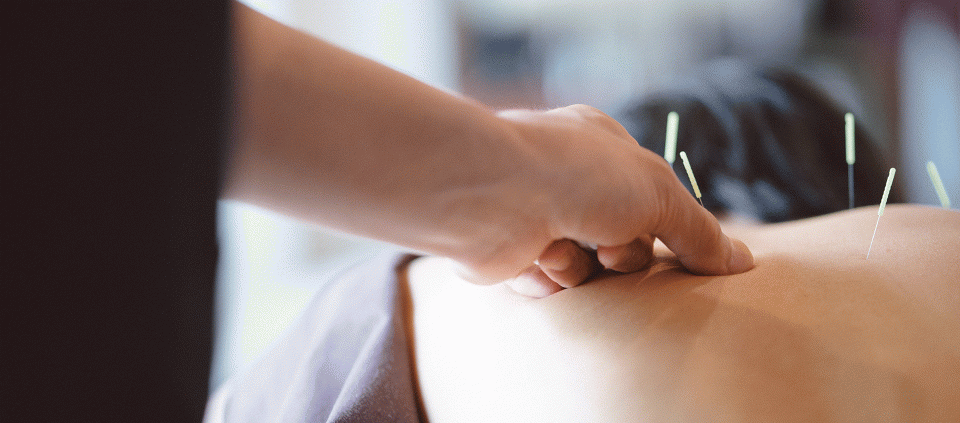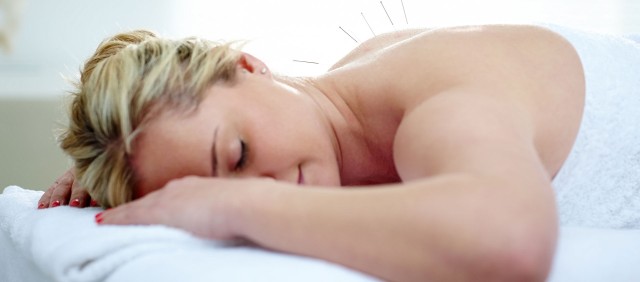Placebo Effect or Evidence Based? Five Theories on Why Acupuncture Works

My first patient ever, a middle-aged woman whom I suspected viewed acupuncture as a dubious heathen ritual antagonistic to her religious beliefs, came to me with one leg in a plaster cast up to her knee. How was I going to treat her? Margaret (not her real name) had experienced a major injury, similar to the one recently suffered by Kevin Durant, former NBA finals MVP; Margaret had an Achilles tendon rupture.
In the 1990s, surgery and immobilization were the treatments of choice. Doubtful whether Traditional Chinese Medicine might do anything positive for her, but desperate for a quick recovery, Margaret agreed to try acupuncture.
Within seconds of me inserting several fine, sterile needles into the area surrounding her unaffected Achilles tendon, Margaret reported “a warm, gentle, pleasant fluttering sensation” at the site of her injury, under the plaster cast. Had some form of voodoo magic occurred? Was it the placebo effect? Or can science explain Margaret’s experience?
The use of acupuncture is on the rise in the United States, primarily as a complementary or alternative treatment to relieve acute or chronic pain. An analysis published in the Journal of Alternative and Complementary Medicine, based on a National Health Interview Survey in 2007, showed that 14 million Americans had used acupuncture, up from 8 million five years prior—with most of them (87 percent) coming for a specific health problem, or because conventional medical treatments didn’t help.
How exactly does acupuncture work? Scientists believe that many benefits derived from acupuncture can be explained by the proximity of acupuncture points to nerves. The scientific community has developed and researched five theories for why acupuncture works.
1. Releases Natural Painkillers
During the 1970s, researchers isolated endorphins—the body’s natural painkillers—in the central nervous system, a breakthrough in the science of mind/body medicine. Endorphins are self-made morphine, produced in the brain. Researcher Candace Pert called endorphins the “molecules of emotion,” because their presence coincided so precisely with dramatic changes in people’s emotional state. Your body produces endorphins to reestablish a state of pain-free, relaxed readiness in response to extreme fluctuations of the mind (either positive or negative). Scientists discovered that acupuncture could reliably stimulate production of endorphins and thereby give patients relief from pain.
2. Blocks Pain Signals from Reaching the Brain
Gate-Control theory is another way scientists explain how acupuncture influences our perception of pain. Various types of nerves have various size diameters, and that size matters. Researchers in physical therapy learned this by testing how people respond to low-level electrical currents delivered across the surface of the skin with a portable device—a process called transcutaneous electric nerve stimulation (TENS). They learned that, if they selected the proper frequency, amplitude, and intensity of current using a TENS machine, they could block people’s pain. In a similar way, those same large-diameter nerves sense acupuncture needles when they are accurately placed in the body. Sensations from the acupuncture needles selectively make it through the “gates” on the way to the brain and effectively block out the sensations of pain.
3. Regulates Neurotransmitters
Neurotransmitters are chemicals in the brain that allow nerve impulses to pass from one nerve cell to another. An example is the neurotransmitter serotonin, which is lacking in sufficient quantity in people with certain mental disorders, such as those labeled with clinical depression. Scientists have found that acupuncture can help modulate serotonin and other neurotransmitters and therefore be effective for the treatment of depression, anxiety, and addiction. Before widespread use of pharmaceutical antidepressants, Traditional Chinese Medicine helped people regulate imbalances of the body, mind, and spirit. Many people are returning to this approach in search of a more natural and sustainable approach to treating long-term emotional and psychological imbalances—an approach that encourages the body to self-regulate.
4. Acts via Multiple Mechanisms
Manipulation of the acupuncture meridians with needles modulates electrical signals within the body and therefore affects the nervous system. Yet some scientists believe acupuncture’s effects cannot be explained using a single scientific model nor by looking at the nervous system in isolation. These scientists note that acupuncture affects respiration, heart rate, blood pressure, circulation, and immune function, and recognize that a more complex model is required.
5. The Power of Positive Thinking
Some researchers believe that acupuncture's effects may be, at least in part, connected to a patient’s beliefs and expectations—in other words, the placebo effect. Researchers at the National Center for Complementary and Integrative Health continue to explore the role of the placebo effect and of patient-provider interactions in health and healing. In the context of acupuncture, placebo effects are catalyzed partially by the positive nature of a therapeutic encounter and the interactions between acupuncturist and patient. For scientists, the challenge is to minimize the impact of the placebo effect in order to more clearly understand the other mechanisms at work.
There’s much more research to do before we thoroughly understand how acupuncture works. It's an exciting time to be a scientist, as the possibilities for testing hypotheses are rich. Clearly, Americans are interested, from both a scientific point of view and a traditional one that embraces the inherent mystery in energy medicine and in the body as a whole.
Greg DiLisio, MAc, is an experienced acupuncturist, Kripalu Legacy Faculty, holds high-level qigong, tai chi, and yoga teacher certifications, and is passionate about moving energy.
Full Bio and Programs

